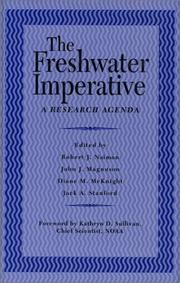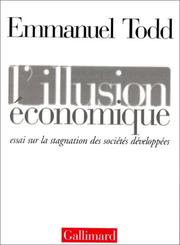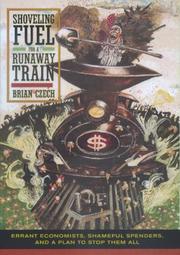| Listing 1 - 7 of 7 |
Sort by
|
Book
ISBN: 9781484352205 1484352203 1498324681 9781498324687 9781498302333 1498302335 1484341244 Year: 2015 Publisher: Washington, D.C. : International Monetary Fund,
Abstract | Keywords | Export | Availability | Bookmark
 Loading...
Loading...Choose an application
- Reference Manager
- EndNote
- RefWorks (Direct export to RefWorks)
Japan’s revitalization plan, dubbed the “three arrows of Abenomics,” devises a three-pronged strategy—combining fiscal, monetary, and structural policies—to overcome that country’s apparent inability to sustain economic recovery. This book is the first comprehensive assessment of Abenomics and the reforms needed to make it a success, including aggressive monetary easing, growth-friendly fiscal consolidation, and structural and financial sector reforms.
Stagnation (Economics) --- Deflation (Finance) --- Disinflation --- Finance --- Economic stagnation --- Stationary state (Economics) --- Steady-state economics --- Economics --- Japan --- Economic conditions --- E-books
Book
ISBN: 9781138953017 9781138953024 9781315667515 9781317358329 9781317358336 1138953024 1315667517 1138953016 1317358341 1317358333 9781317358343 1317358325 Year: 2016 Publisher: London ; New York : Routledge,
Abstract | Keywords | Export | Availability | Bookmark
 Loading...
Loading...Choose an application
- Reference Manager
- EndNote
- RefWorks (Direct export to RefWorks)
Stagnation (Economics) --- Economic development --- Sustainable development --- Environmental aspects --- Sustainable development. --- Environmental aspects. --- Stagnation (Economics). --- Economic development - Environmental aspects --- Development, Sustainable --- Ecologically sustainable development --- Economic development, Sustainable --- Economic sustainability --- ESD (Ecologically sustainable development) --- Smart growth --- Sustainable economic development --- Eco-development --- Ecodevelopment --- Economic stagnation --- Stationary state (Economics) --- Steady-state economics --- Economics

ISBN: 1559634073 1559634065 9781559634069 9781559634076 1417539690 9781417539697 9781610910712 1610910710 1597268720 1559630728 9781559630726 155963071X 9781559630719 Year: 1995 Publisher: Washington, D.C. Island Press
Abstract | Keywords | Export | Availability | Bookmark
 Loading...
Loading...Choose an application
- Reference Manager
- EndNote
- RefWorks (Direct export to RefWorks)
Ecosystem management --- Limnology --- Water quality management --- Research. --- Water quality --- Water quality control --- Management --- Sewage disposal --- Water conservation --- Water-supply --- Biotic communities --- Ecosystems management --- Applied ecology --- Environmental management --- Nature conservation --- Biodiversity conservation --- Aquatic sciences --- Freshwater biology --- Economic development --- Stagnation (Economics) --- Economic stagnation --- Stationary state (Economics) --- Steady-state economics --- Economics --- Eco-development --- Ecodevelopment --- Moral and ethical aspects. --- Environmental aspects. --- Moral and religious aspects
Book
ISBN: 0986076937 0986076945 9780986076930 9780986076947 Year: 2016 Publisher: Atlanta GA Clarity Press Inc
Abstract | Keywords | Export | Availability | Bookmark
 Loading...
Loading...Choose an application
- Reference Manager
- EndNote
- RefWorks (Direct export to RefWorks)
Just as contemporary economics failed to predict the 2008-09 crash, and over-estimated the subsequent brief recovery that followed, economists today are again failing to accurately forecast the slowing global economic growth, the growing fragility, and therefore rising instability in the global economy. This book offers a new approach to explaining why mainstream economic analyses have repeatedly failed and why fiscal and monetary policies have been incapable of producing a sustained recovery. Expanding upon the early contributions of Keynes, Minsky and others, it offers an alternative explanation why the global economy is slowing long term and becoming more unstable, why policies to date have largely failed, and why the next crisis may therefore prove even worse than that of 2008- 09. Systemic fragility is rooted in 9 key empirical trends: slowing real investment; a drift toward deflation; money, credit and liquidity explosion; rising levels of global debt; a shift to speculative financial investing; the restructuring of financial markets to reward capital incomes; the restricting of labor markets to lower wage incomes; the failure of Central Bank monetary policies; and the ineffectiveness of fiscal policies. It results from financial, consumer, and government balance sheet fragilities exacerbating each other -- creating a massive centripetal force disaggregating and tearing apart the whole, untameable by either fiscal or monetary means. This book clarifies how the price system in general, and financial asset prices in particular, transform into fundamentally destabilizing forces under conditions of systemic fragility. It explains why the global system has in recent decades become dependent upon, and even addicted to, massive liquidity injections, and how fiscal policies have been counterproductive, exacerbating fragility and instability. Policymakers’ failure to come to grips with how fundamental changes in the structure of the 21st century global capitalist economy—in particular in financial and labor market structures—make the global economy more systemically fragile can only propel it toward deeper instability and crises.
Business cycles --- Financial crises --- Stagnation (Economics) --- Economic development --- Economic policy --- Economic Theory --- Business & Economics --- Economic nationalism --- Economic planning --- National planning --- State planning --- Development, Economic --- Economic growth --- Growth, Economic --- Economic stagnation --- Stationary state (Economics) --- Steady-state economics --- Crashes, Financial --- Crises, Financial --- Financial crashes --- Financial panics --- Panics (Finance) --- Stock exchange crashes --- Stock market panics --- Economic cycles --- Economic fluctuations --- Economics --- Planning --- National security --- Social policy --- Statics and dynamics (Social sciences) --- Development economics --- Resource curse --- Crises --- Cycles --- E-books

ISBN: 2070748855 9782070748853 Year: 1998 Publisher: Paris Gallimard
Abstract | Keywords | Export | Availability | Bookmark
 Loading...
Loading...Choose an application
- Reference Manager
- EndNote
- RefWorks (Direct export to RefWorks)
Stagnation (Economics) --- Economic history --- -Stagnation (Economics) --- theories economiques --- situation economique --- pays industrialises --- AA / International- internationaal --- FR / France - Frankrijk --- 331.01 --- 330.1 --- 331.31 --- 330.2 --- 338.8 --- Economic stagnation --- Stationary state (Economics) --- Steady-state economics --- Business cycles --- Economic development --- Economics --- Equilibrium (Economics) --- Economic conditions --- History, Economic --- economische theorieen --- economische toestand --- geindustrialiseerde landen --- Evolutie van de economische cycli. --- Domein en natuur van de staathuishoudkunde. --- Economisch beleid. --- Economische analyse en research. Theorie van de informatie. --- Economische groei. --- Domein en natuur van de staathuishoudkunde --- Economische analyse en research. Theorie van de informatie --- Evolutie van de economische cycli --- Economisch beleid --- Economische groei --- CDL --- 33 --- 330 --- crise économique --- croissance économique --- politieke wetenschappen --- politologie --- Economic history - 1990 --- -CDL

ISBN: 1283277018 159734897X 9786613277015 0520925602 9780520925601 9781597348973 9780520225084 0520225082 9780520225145 0520225147 0585441383 9780585441382 0520225082 0520225147 Year: 2000 Publisher: Berkeley University of California Press
Abstract | Keywords | Export | Availability | Bookmark
 Loading...
Loading...Choose an application
- Reference Manager
- EndNote
- RefWorks (Direct export to RefWorks)
Americans have been conditioned to appreciate, cheer, and serve economic growth. Brian Czech argues that, while economic growth was a good thing for much of American history, somewhere along the way it turned bad, depleting resources, polluting the environment, and threatening posterity. Yet growth remains a top priority of the public and polity. In this revolutionary manifesto, Czech knocks economic growth off the pedestal of American ideology. Seeking nothing less than a fundamental change in public opinion, Czech makes a bold plea for castigating society's biggest spenders and sets the stage for the "steady state revolution. "Czech offers a sophisticated yet accessible critique of the principles of economic growth theory and the fallacious extension of these principles into the "pop economics" of Julian Simon and others. He points with hope to the new discipline of ecological economics, which prescribes the steady state economy as a sustainable alternative to economic growth. Czech explores the psychological underpinnings of our consumer culture by synthesizing theories of Charles Darwin, Thorstein Veblen, and Abraham Maslow. Speaking to ordinary American citizens, he urges us to recognize conspicuous consumers for who they are-bad citizens who are liquidating our grandkids' future. Combining insights from economics, psychology, and ecology with a large dose of common sense, Czech drafts a blueprint for a more satisfying and sustainable society. His ideas reach deeply into our everyday lives as he asks us to re-examine our perspectives on everything from our shopping habits to romance. From his perspective as a wildlife ecologist, Czech draws revealing parallels between the economy of nature and the human economy. His style is lively, easy to read, humorous, and bound to be controversial. Czech will provoke all of us to ask when we will stop the runaway train of economic growth. His book answers the question, "How do we do it?"
Economic development --- Consumption (Economics) --- Neoclassical school of economics. --- Stagnation (Economics) --- Consumer demand --- Consumer spending --- Consumerism --- Spending, Consumer --- Demand (Economic theory) --- Economic stagnation --- Stationary state (Economics) --- Steady-state economics --- Economics --- Cambridge school of economics --- Marshallian economics --- Classical school of economics --- Schools of economics --- Development, Economic --- Economic growth --- Growth, Economic --- Economic policy --- Statics and dynamics (Social sciences) --- Development economics --- Resource curse --- Economic aspects. --- american citizens. --- american history. --- american. --- bad habits. --- common sense. --- controversial. --- cultural studies. --- ecology. --- economic growth. --- economics. --- environment. --- environmental. --- environmentalist. --- finance. --- money. --- natural resources. --- natural world. --- pollution. --- psychology. --- public opinion. --- resource depletion. --- resource management. --- revolution. --- social history. --- social studies. --- sustainable living. --- sustainable. --- united states history. --- us history.
Book
ISBN: 0814724671 9780814724675 9780814759370 0814759378 9781583673157 1583673156 1479839787 9781479839780 158367313X Year: 2013 Publisher: New York, NY : New York University Press,
Abstract | Keywords | Export | Availability | Bookmark
 Loading...
Loading...Choose an application
- Reference Manager
- EndNote
- RefWorks (Direct export to RefWorks)
The canyon in central Mexico was ablaze with torches as hundreds of people filed in. So palpable was their shared shock and grief, they later said, that neither pastor nor priest was needed. The event was a memorial service for one of their own who had died during an attempted border passage. Months later a survivor emerged from a coma to tell his story. The accident had provoked a near-death encounter with God that prompted his conversion to Pentecostalism. Today, over half of the local residents of El Alberto, a town in central Mexico, are Pentecostal. Submitting themselves to the authority of a God for whom there are no borders, these Pentecostals today both embrace migration as their right while also praying that their “Mexican Dream”—the dream of a Mexican future with ample employment for all—will one day become a reality. Fire in the Canyon provides one of the first in-depth looks at the dynamic relationship between religion, migration, and ethnicity across the U.S.-Mexican border. Faced with the choice between life-threatening danger at the border and life-sapping poverty in Mexico, residents of El Alberto are drawing on both their religion and their indigenous heritage to demand not only the right to migrate, but also the right to stay home. If we wish to understand people's migration decisions, Sarat argues, we must take religion seriously. It is through religion that people formulate their ideas about life, death, and the limits of government authority.
El Alberto (Mexico) -- Emigration and immigration. --- El Alberto (Mexico) -- Religious life and customs. --- Pentecostalism -- Social aspects -- Mexico -- El Alberto. --- Social networks -- Mexico --El Alberto. --- Pentecostalism --- Social networks --- Political Science --- Law, Politics & Government --- Immigration & Emigration --- Networking, Social --- Networks, Social --- Social networking --- Social support systems --- Support systems, Social --- Interpersonal relations --- Cliques (Sociology) --- Microblogs --- Charismatic Movement --- Charismatic Renewal Movement --- Latter Rain movement --- Neo-Pentecostalism --- Pentecostal movement --- Christianity --- Gifts, Spiritual --- Glossolalia --- Social aspects --- El Alberto (Mexico) --- Alberto, El (Mexico) --- Alberto (Hidalgo, Mexico) --- Emigration and immigration. --- Emigration and immigration --- Religious aspects --- Pentecostal churches. --- Religious life and customs. --- Capitalism. --- Stagnation (Economics) --- Economic development. --- Development, Economic --- Economic growth --- Growth, Economic --- Economic policy --- Economics --- Statics and dynamics (Social sciences) --- Development economics --- Resource curse --- Economic stagnation --- Stationary state (Economics) --- Steady-state economics --- Market economy --- Profit --- Capital --- Capitalism --- Economic development --- E-books
| Listing 1 - 7 of 7 |
Sort by
|

 Search
Search Feedback
Feedback About
About Help
Help News
News